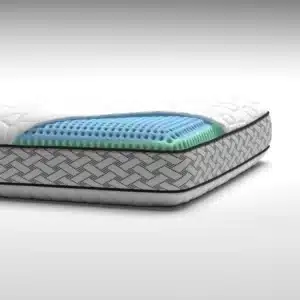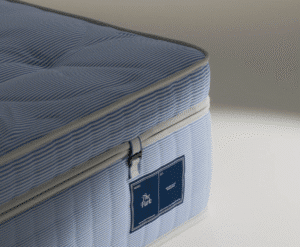A Comprehensive Guide to Mattress Prescriptions
Can You Get a Prescription for a Mattress?
Yes, in specific circumstances, you can obtain a prescription for a mattress, particularly when it is deemed medically necessary. This guide will explore the ins and outs of mattress prescriptions, including when they are applicable, how to secure one, and what insurance options may be available.
Understanding Medical Necessity
A mattress prescription is not a one-size-fits-all solution. For a mattress to be prescribed, a healthcare professional must determine that it is essential for your health condition. Conditions often warranting a mattress prescription include:
– Chronic Pain: Issues such as sciatica, arthritis, and bulging discs can significantly impact your ability to sleep comfortably.
– Sleep Disorders: Conditions like sleep apnea may benefit from specialized mattresses designed to improve sleep quality.
– Post-Surgery Needs: After surgical procedures, recovery may require a specific type of mattress that supports healing and offers comfort.
It’s crucial to discuss your symptoms and sleep challenges with your doctor. They will evaluate whether a specialized mattress can help alleviate your problems and improve your overall quality of life.
Insurance Coverage Options
One of the most significant advantages of obtaining a prescription for a mattress is the potential for insurance coverage. Medicare and some private insurance plans may cover the cost of a mattress classified as Durable Medical Equipment (DME). However, there are important factors to consider:
– DME Classification: For insurance to cover your mattress, it must meet the specific criteria set forth by the insurer. This usually means that the mattress is medically necessary, durable, used solely by the patient, and intended for home use.
– Consult Your Provider: Speak with your healthcare provider about the documentation required for the insurance company. This could involve detailed notes regarding your medical condition and the expected benefits of a specialized mattress.
– Look for In-Network Suppliers: Insurance coverage may also depend on where you purchase the mattress. It’s beneficial to check which suppliers or manufacturers are considered in-network by your insurance provider.
Eligibility Requirements for a Mattress Prescription
To qualify for a mattress prescription, certain eligibility requirements must be met:
– Durability: The mattress must be built to last and withstand regular use while providing adequate support.
– Used Exclusively by the Patient: The mattress should be intended solely for the use of the patient with the medical condition, reinforcing its necessity.
– Home Use: Most prescriptions are focused on mattresses designed for home environments rather than commercial use.
The Benefits of an Orthopedic Mattress
Often prescribed for individuals experiencing chronic pain or discomfort, an orthopedic mattress aims to promote spinal alignment and support body contours. Here are some reasons to consider this type of mattress:
– Enhanced Support: These mattresses are specifically designed to provide extra support to pressure points, crucial for those with back pain or joint issues.
– Improved Sleep Quality: With better support and alignment, you’re more likely to experience a restful night’s sleep, vital for recovery.
– Customization: Many orthopedic mattresses come in various materials and designs, allowing you to select one that best fits your personal comfort needs.
Choosing the Right Mattress: Expert Recommendations
When considering a mattress prescription, it’s also beneficial to consult with specialists. Chiropractors, for instance, often recommend mattresses tailored to alleviate back pain and improve body posture. Here are some types of mattresses that may be recommended:
– Memory Foam Mattresses: These conform to your body shape, providing pressure relief and spinal alignment.
– Latex Mattresses: Known for their responsiveness and breathability, these mattresses support alignment and are often recommended for back pain.
– Hybrid Models: Combining innerspring coils with foam or latex layers, hybrid mattresses can offer a balance of support and comfort.
Conclusion
In summary, obtaining a prescription for a mattress is not only possible but can be a crucial step for individuals dealing with specific health issues. A healthcare provider’s evaluation is key to determining medical necessity, and understanding your insurance coverage can alleviate financial burdens. As you explore your options, consider the benefits of orthopedic mattresses and expert recommendations to find one that meets your unique needs.
If you’re struggling with chronic pain or sleep disorders, don’t hesitate to discuss the possibility of a mattress prescription with your healthcare provider. A tailored sleeping solution could significantly enhance your comfort and improve your overall well-being.


















